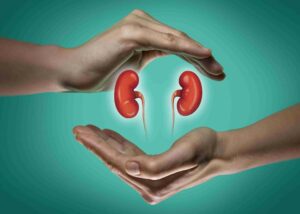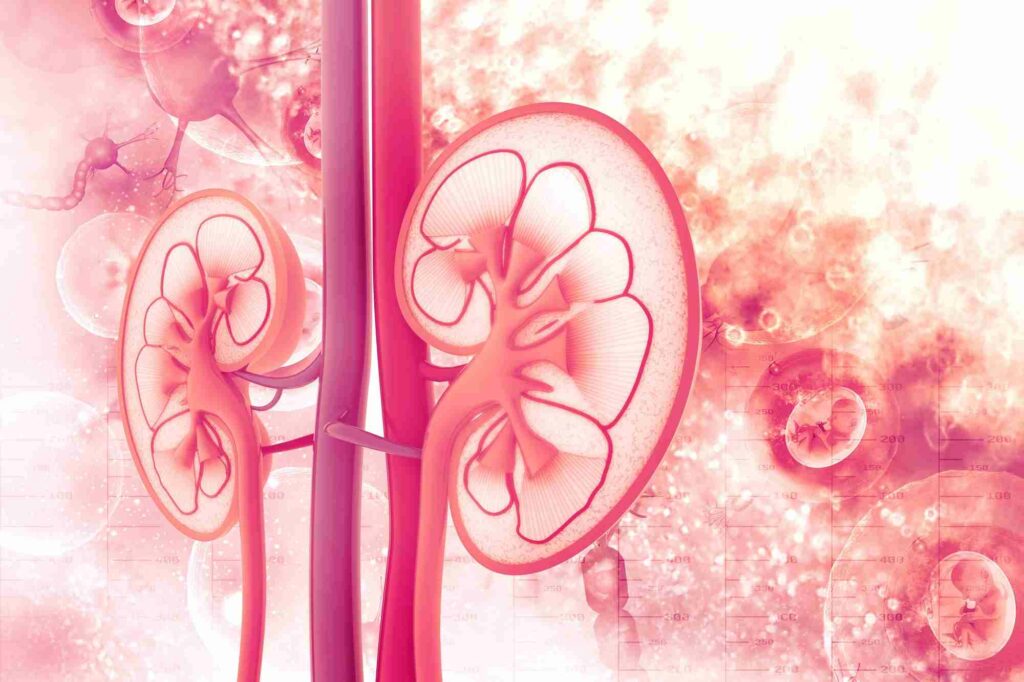Microalbuminuria, a condition characterized by the presence of a small amount of albumin in the urine, is often an early sign of kidney damage. It is particularly in individuals with diabetes or hypertension. This condition can serve as a crucial warning signal for potential kidney disease and other related health complications. In this comprehensive guide, we will delve into the most important microalbuminuria treatment that can help lead to better health outcomes and quality of life.
Contents
What Is Microalbuminuria?
 Microalbuminuria is a medical condition marked by the presence of a small amount of albumin, a type of protein, in the urine. It’s considered an important early indicator of kidney damage, particularly in people with diabetes. Normally, the kidneys filter waste products from the blood while retaining essential components like proteins. However, when the kidneys are damaged, they may start to leak albumin into the urine, leading to microalbuminuria.
Microalbuminuria is a medical condition marked by the presence of a small amount of albumin, a type of protein, in the urine. It’s considered an important early indicator of kidney damage, particularly in people with diabetes. Normally, the kidneys filter waste products from the blood while retaining essential components like proteins. However, when the kidneys are damaged, they may start to leak albumin into the urine, leading to microalbuminuria.
This condition is a critical early sign of kidney disease, as it often precedes significant kidney damage and can alert healthcare providers to the need for intervention before more severe complications arise. In the context of diabetes, for example, persistently high blood sugar levels can damage the blood vessels in the kidneys, impairing their filtering ability. Thus, it is a crucial metric in nephrology (the study of kidney health) and is used to guide both the diagnosis and the treatment of kidney-related disorders.
What Medication Is Used To Reduce Microalbumin In Urine?
Medications used to reduce microalbumin in urine primarily focus on the underlying causes, such as diabetes and hypertension. The goal of these medications is not only to lower the level of albumin in the urine but also to protect the kidneys from further damage. Here are the key types of medications used in microalbuminuria treatment:
Angiotensin-converting enzyme (ACE) Inhibitors
These drugs, such as lisinopril, enalapril, and ramipril, are often prescribed for patients with diabetes or hypertension. They work by relaxing blood vessels and reducing blood pressure. This, in turn, helps reduce the strain on the kidneys and the amount of albumin in the urine.
Angiotensin II Receptor Blockers (ARBs)
Similar to ACE inhibitors, ARBs such as losartan and valsartan are used to lower blood pressure and reduce kidney damage in patients with hypertension and diabetes. They block the action of angiotensin II, a chemical that narrows blood vessels. Thereby helping to reduce blood pressure and albuminuria.
Blood Pressure Control Medications
Besides ACE inhibitors and ARBs, other blood pressure medications might be prescribed to control hypertension. It is a key factor in reducing microalbuminuria.
Diabetes Medications
For those with diabetes, maintaining blood sugar levels within the target range is crucial. Medications like metformin, insulin, and newer classes of diabetes medications can help in achieving this goal, indirectly contributing to the reduction of microalbumin in urine.
It’s important to note that microalbuminuria treatment is typically personalized based on the individual’s overall health, the severity of the condition, and the underlying causes. Regular monitoring and consultations with healthcare professionals are essential for effective management.
How Can I Reduce Microalbuminuria Naturally?
 Reducing microalbuminuria naturally involves lifestyle changes and home remedies that can support kidney health and overall well-being. While these methods can be beneficial, they should complement, not replace, medical treatment advised by healthcare professionals. Here are some natural ways to reduce microalbuminuria:
Reducing microalbuminuria naturally involves lifestyle changes and home remedies that can support kidney health and overall well-being. While these methods can be beneficial, they should complement, not replace, medical treatment advised by healthcare professionals. Here are some natural ways to reduce microalbuminuria:
Maintain Healthy Blood Sugar Levels
To manage blood sugar levels effectively, one should adhere to a diabetes management plan that includes a balanced diet, regular monitoring of blood glucose, and adherence to prescribed medications such as insulin or oral hypoglycemics. Dietary choices should focus on low-glycemic foods to prevent spikes in blood sugar levels. Additionally, regular consultation with a healthcare provider is essential to adjust treatment plans as needed and monitor for any signs of kidney damage.
Manage Blood Pressure
High blood pressure is a major risk factor for the development of kidney problems, including microalbuminuria. Managing blood pressure is therefore crucial for kidney health. Lifestyle modifications, such as reducing sodium intake, can be effective. The Dietary Approaches to Stop Hypertension (DASH) diet, which emphasizes fruits, vegetables, whole grains, and lean proteins, is often recommended. Regular physical activity, even moderate-intensity activities like brisk walking, can significantly help in controlling blood pressure.
Follow a Kidney-Friendly Diet
This involves limiting foods high in salt, as sodium can increase blood pressure and put additional strain on the kidneys. It’s also advisable to moderate protein intake; while protein is a crucial nutrient, excessive amounts can burden the kidneys. Foods rich in antioxidants, such as fruits and vegetables, can help protect the kidneys from damage. In advanced stages of kidney disease, it may also be necessary to limit foods high in phosphorus and potassium, as impaired kidneys struggle to filter these minerals.
Stay Hydrated
Drinking enough water helps to dilute the urine and reduces the concentration of substances that can harm the kidneys, like albumin. The amount of water needed can vary based on factors like age, activity level, climate, and health status. Generally, aiming for around 1.5 to 2 liters per day is a good guideline for most people, but this can vary. It’s important to note that overhydration is also not recommended, especially for individuals with certain health conditions or those who have been advised to restrict fluid intake.
Regular Exercise
Engaging in regular physical activity is a key strategy in microalbuminuria treatment. Exercise helps in several ways: it can reduce blood pressure, aid in blood sugar control, reduce stress levels, and help maintain a healthy weight. Cardiovascular exercises such as walking, jogging, swimming, or cycling are particularly effective in improving heart health and circulation, which in turn benefits the kidneys. Strength training can also be beneficial, as it improves muscle strength and metabolism.
Avoid Smoking and Limit Alcohol Intake
Smoking and excessive alcohol consumption can have detrimental effects on kidney health. Smoking not only damages blood vessels but also increases the risk of high blood pressure and accelerates the loss of kidney function. Quitting smoking can significantly reduce these risks. Limiting alcohol consumption is also important; while moderate alcohol use may have some health benefits, excessive drinking can cause a rise in blood pressure and can potentially harm liver and kidney function.
Weight Management
 Excess weight, particularly obesity, is a known risk factor for chronic diseases like diabetes and hypertension, which are primary causes of microalbuminuria. Weight management involves a combination of a healthy diet and regular physical activity. A balanced diet that is rich in vegetables, fruits, whole grains, and lean proteins, and low in processed foods and sugars, can help in achieving and maintaining a healthy weight. In addition to dietary changes, incorporating regular physical activity is crucial. Even modest weight loss can have a significant impact on reducing the risk of developing conditions that lead to microalbuminuria.
Excess weight, particularly obesity, is a known risk factor for chronic diseases like diabetes and hypertension, which are primary causes of microalbuminuria. Weight management involves a combination of a healthy diet and regular physical activity. A balanced diet that is rich in vegetables, fruits, whole grains, and lean proteins, and low in processed foods and sugars, can help in achieving and maintaining a healthy weight. In addition to dietary changes, incorporating regular physical activity is crucial. Even modest weight loss can have a significant impact on reducing the risk of developing conditions that lead to microalbuminuria.
Use of Natural Supplements
Omega-3 fatty acids, found in fish oil, have been shown to have anti-inflammatory properties and may help in managing kidney disease. Antioxidants like vitamins C and E may also provide some kidney-protective effects. Herbal remedies, such as green tea or turmeric, are popular for their potential health benefits, including kidney function. However, it’s critical to approach the use of supplements with caution, as they can interact with medications and may not be suitable for everyone, especially those with advanced kidney disease.
Stress Management
Chronic stress can negatively impact overall health, including blood pressure and lifestyle habits, which in turn can affect kidney health. Effective stress management can, therefore, play a role in reducing microalbuminuria. Techniques such as mindfulness, meditation, yoga, and deep breathing exercises can be beneficial in managing stress. Regular participation in enjoyable activities or hobbies and maintaining a social support network can also help in reducing stress levels.
Implementing these lifestyle changes can be a powerful tool in the natural microalbuminuria treatment. However, it’s important to remember that these should complement medical treatment and regular monitoring by a healthcare professional, particularly in individuals with underlying health conditions.
Conclusion
In conclusion, microalbuminuria treatment involves a multifaceted approach that includes maintaining healthy blood sugar levels, managing blood pressure, adhering to a kidney-friendly diet, staying hydrated, engaging in regular exercise, avoiding smoking, limiting alcohol intake, maintaining a healthy weight, considering natural supplements with caution, and managing stress effectively. These lifestyle modifications not only help in reducing microalbuminuria but also contribute to overall health and well-being.
Regular check-ups and open communication with healthcare providers are key to effectively managing this condition and maintaining kidney health. Do you want to get rid of diabetes? Join our online diabetes treatment program and reverse Diabetes naturally through lifestyle changes such as a Personalized Diet plan, Exercise, Yoga, dieticians, and health coaches.

